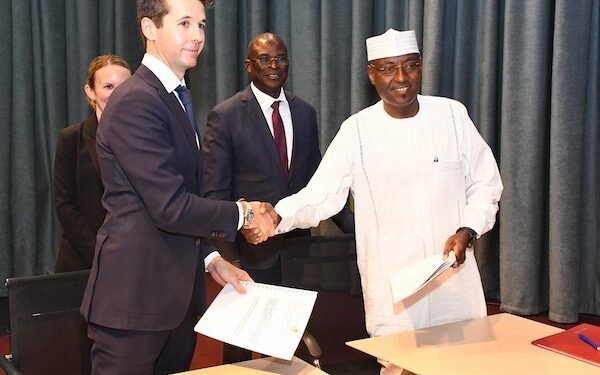SpaceX’s LEO satellite operator Starlink has officially launched services in Niger, while also obtaining its operator licence for Chad some four months after the licence was approved.
Niger’s Ministry of Communications, Post and Digital Economy announced on Thursday that Starlink internet services were commercially available in the country, and that residential and corporate kits are now available to purchase online and from authorized sellers.
In a statement on Facebook, communications minister Sidi Mohamed Raliou cautioned that under current regulations, Starklink kits can only be used by the individual or business that bought them. Sharing kits is illegal, and purchasers would be held responsible for any misuse of the service by others.
The service launch comes several months after SpaceX signed an agreement with Niger’s ruling military Junta in November 2024 to offer LEO satellite broadband in the country.
Also on Thursday, Chad’s Ministry of Telecommunications, Digital Economy and Digitalization announced on its Facebook page that Starlink had signed its operating license that will enable it to offer services in the country.
The licence has been in the pipeline since 2021, and was approved by the ministry in November 2024. Since then, however, Starlink and the ministry had been engaged in “extensive discussions” on the details of the licence to ensure that Starlink complies with national regulatory, security and economic requirements, said communications minister Boukar Michel.
“The main objective of granting this operating license is to ensure that Starlink’s offering fully meets national requirements in terms of regulation, network security, personal data protection and integration with local telecom actors, while reassuring that the tariff and tax framework complies with the standards of the African Telecommunications Union and the International Telecommunication Union,” he said.
The announcement didn’t specify exactly when Starlink services would be commercially available in Chad.
Both countries are expecting Starlink’s entry to boost internet take-up – particularly in Chad, where internet penetration is estimated at 13.2% as of the start of 2025, according to the Datareportal website. Mobile penetration is close to 70%.
In Niger, according to data from regulator ARCEP, internet penetration is around 32% as of the end of September 2024, while mobile penetration is 60.7%.
Starlink’s ability to boost internet penetration in either country will depend on how much it charges. A report from Rest Of World in January found that in the other 16 African countries where Starlink operates, the monthly subscription price is cheaper than local ISPs in five of them – Kenya, Zimbabwe, Cape Verde, Mozambique and Ghana.
That doesn’t include the hardware kits, which are expensive. According to ROW, kit availability and prices range from US$178 for a Starlink Mini in Kenya to US$381 for a Standard Actuated kit in Nigeria.









